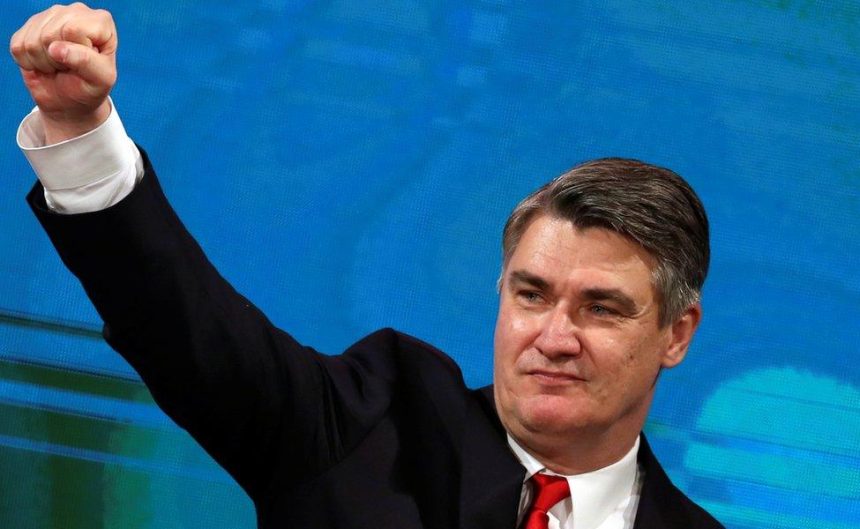Croatian President Zoran Milanovic has secured a decisive re-election victory, winning more than 74% of the vote in Sunday’s presidential runoff. Milanovic, backed by the opposition Social Democratic Party (SDP), triumphed over his rival Dragan Primorac, who garnered just 25% of the vote, according to the State Electoral Commission.
“Croatia, thank you,” Milanovic told supporters in the capital, Zagreb. “This is a significant day for me personally, and I see this victory as a recognition of my work—a sign of the people’s trust in me.”
Milanovic, 58, narrowly missed an outright win in the first round of voting two weeks ago, securing 49.1% of the vote. His opponent, Primorac, a former science and education minister backed by the ruling Croatian Democratic Union (HDZ), received 19.35% in the initial round.
A Divisive Figure in Croatian Politics
Milanovic, a former prime minister known for his outspoken and combative political style, has been a polarizing figure, often clashing with Prime Minister Andrej Plenkovic and his conservative HDZ party. Milanovic has accused the HDZ of fostering systemic corruption, calling Plenkovic a “serious threat to Croatia’s democracy.”
Although Croatia’s presidency is largely ceremonial, the president holds key roles in foreign policy, defense, and security matters and serves as the supreme military commander. Milanovic’s victory is viewed as a political setback for Plenkovic’s government.
Contentious Foreign Policy Stances
Milanovic has been critical of Western military support for Ukraine, despite condemning Russia’s invasion. Last year, he blocked the deployment of five Croatian officers to NATO’s Security Assistance and Training Mission in Germany for Ukraine. He has also pledged not to support sending Croatian troops to Ukraine under any NATO mission, though Plenkovic’s government maintains that no such proposal exists.
His opponent, Primorac, had attempted to cast Milanovic as a “pro-Russian puppet” during the campaign, accusations that Milanovic vehemently denied. Milanovic’s criticism of Israel’s military actions and his opponent’s alleged ties to controversial figures also became focal points in the election, further intensifying the political divide.
Primorac’s Political History
Primorac, 59, entered politics in the early 2000s as science and education minister under the HDZ-led government. He previously ran unsuccessfully for the presidency in 2009 before shifting his focus to academia, teaching at universities in the US, China, and Croatia.
Milanovic’s resounding re-election victory underscores his enduring popularity among Croatian voters despite his controversial rhetoric. Political analysts believe the result highlights continued public dissatisfaction with the ruling party, potentially signaling further challenges ahead for the HDZ.




